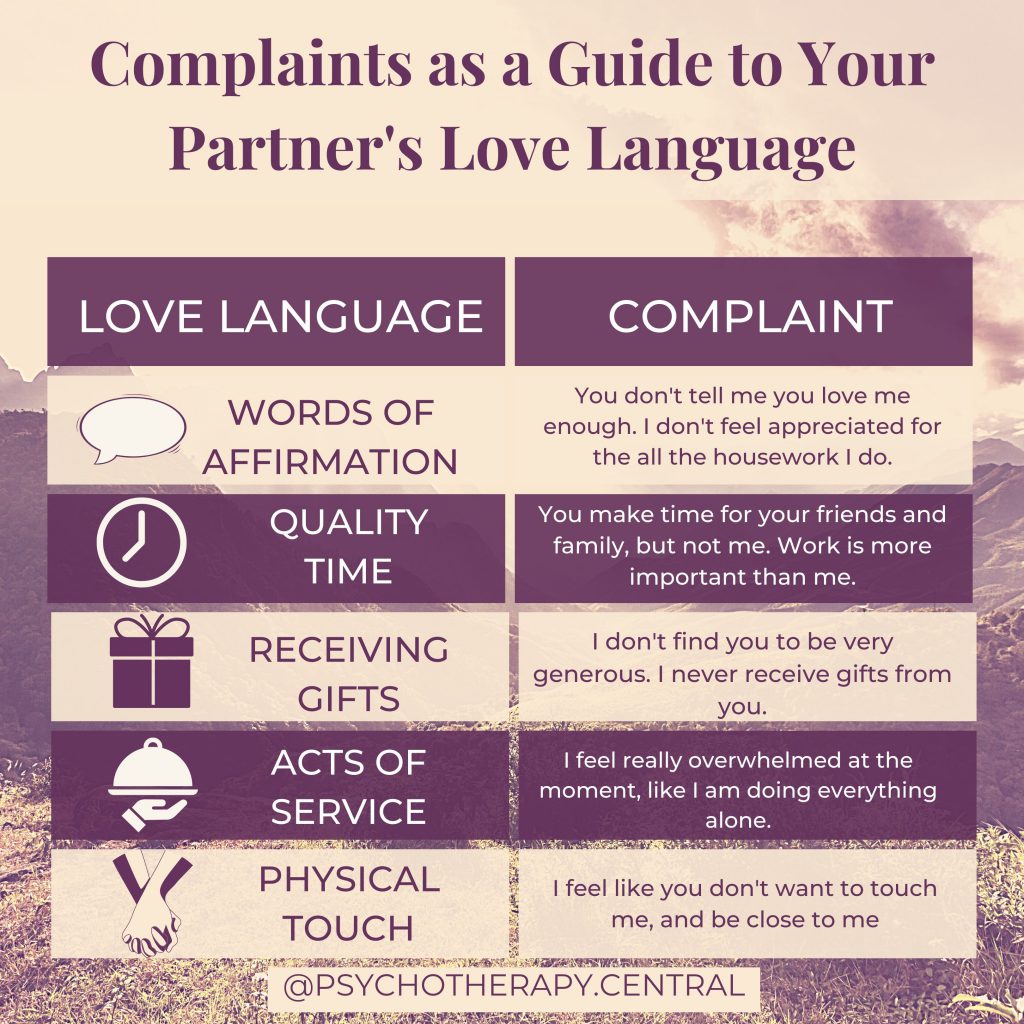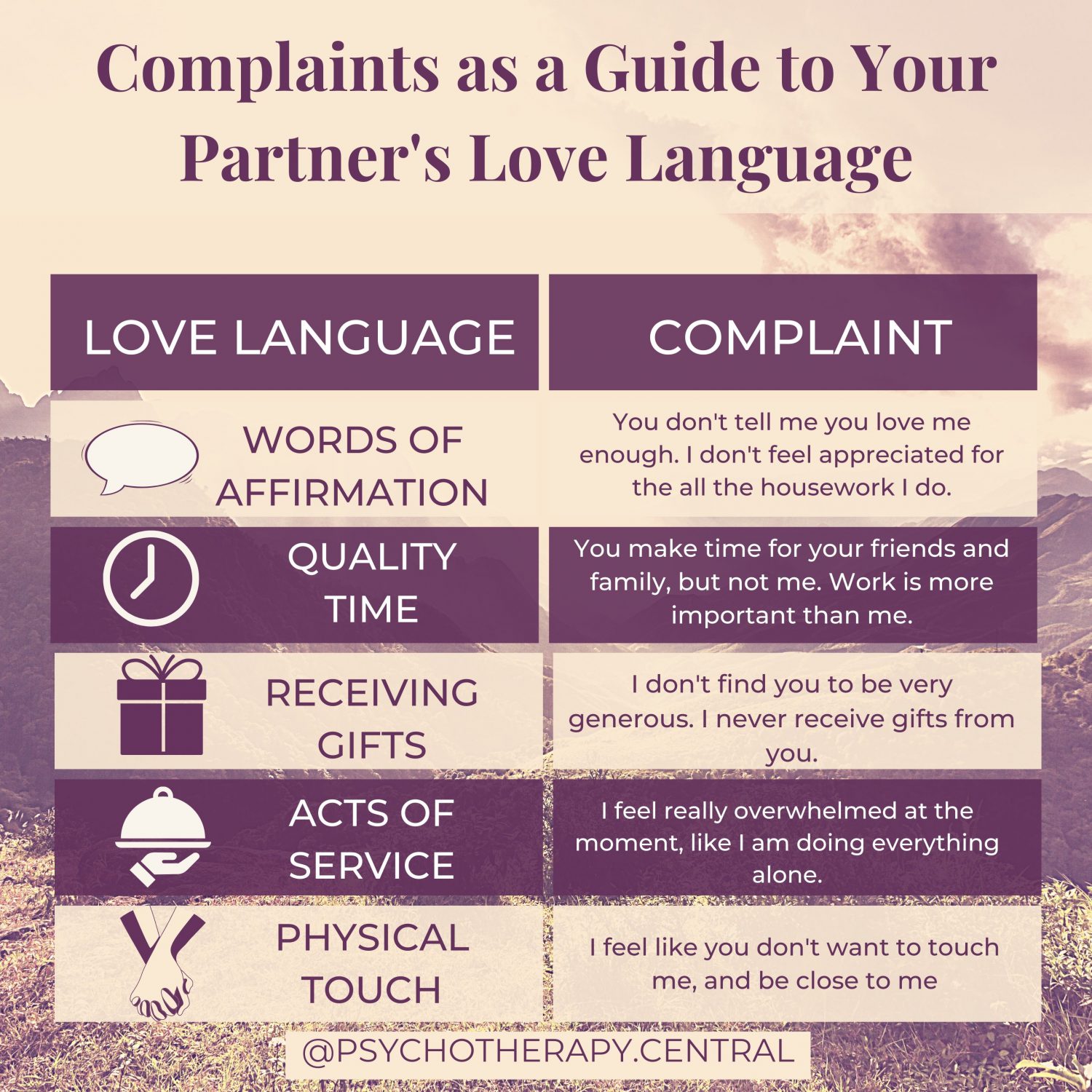You might find that the thing your partner complains most about not receiving from you, is one of their main love languages.
For example, your partner might complain about not feeling noticed, not being told that they are loved, not hearing how much you value them in your life. It could be that one of your partner’s love languages is words of affirmation.
If giving words of affirmation is not natural for you, it could be that you received few as a child and the thought of actually telling someone frequently how much you love them makes you feel vulnerable or silly. It is a good idea to let your partner know that this is how you feel when you give words of affirmation, but that you are committed to working on it because you know how important it is to them.
We often find ourselves complaining when our needs are not being met and we are unable to ask for what we need assertively. Sometimes, we haven’t even distilled the actual need that is not being met. This is where the love languages can be incredibly useful.
What are your top two love languages?
What do you find yourself complaining to your partner about the most?
Is there a connection?
What need, in the form of love language, is not being met?
How can you communicate this to your partner in a way that it can be heard?
TIP
Share what you love and give an example of when they have done it well and how it made you feel.
For example: I really loved it the other day when you said how kind I was to our neighbour. I love it when you verbalise you love and appreciation for me, it makes me feel warm inside.
Hearing how it makes you feel when they give you words of affirmation might come as a complete surprise. Once they know the effect their words have on you, that alone can be a huge impetus for more.
I hope you find this useful in your relationships.
Much love on your healing journey, Jen.

Reference: Chapman, G. (2015). The 5 Love Languages. Northfield Publishing; Chicago, IL.
